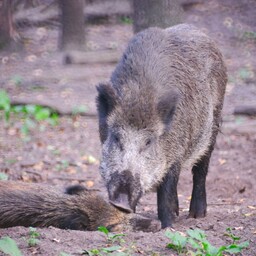Recently, a highly contagious herpesvirus was found in several horses in Harju County. Professor Arvo Viltrop said that this virus has been present in horses for centuries. Mostly, it does not cause illness, but the virus can reactivate. For example, stress can trigger a new outbreak of the virus. Then horses can become ill, for example, with breathing difficulties. In more severe cases, abortions or even death can occur.
In infected horses, only symptoms can be relieved and supportive care provided. The virus is under national surveillance in Estonia, but horse owners must take care of their animals themselves.
In Europe, the spread of foot-and-mouth disease has recently caused concern. However, recent weeks give hope that the situation is stabilizing. The last outbreak was in Slovakia on April 4. Professor Viltrop says the situation is currently good, but we still need to wait a couple of weeks.
Human activity is to blame for the spread of foot-and-mouth disease. The virus strains originate from Asia and were spread to Europe through food brought by people. For example, the virus strain in Germany was from Turkey, and in Slovakia and Hungary from Pakistan.
African swine fever may spread more widely again in Estonia this summer. The wild boar population has increased, and this allows the disease to spread. Professor Viltrop says that we used to control wild boars, but now the situation has worsened. The disease has already spread to Central Estonia.
The professor also warns about open farm days. Such events can spread dangerous diseases. Viltrop advises avoiding farms and following hygiene measures. For example, shoes and hands should be disinfected before and after farm visits. Also, food should not be brought from abroad.

